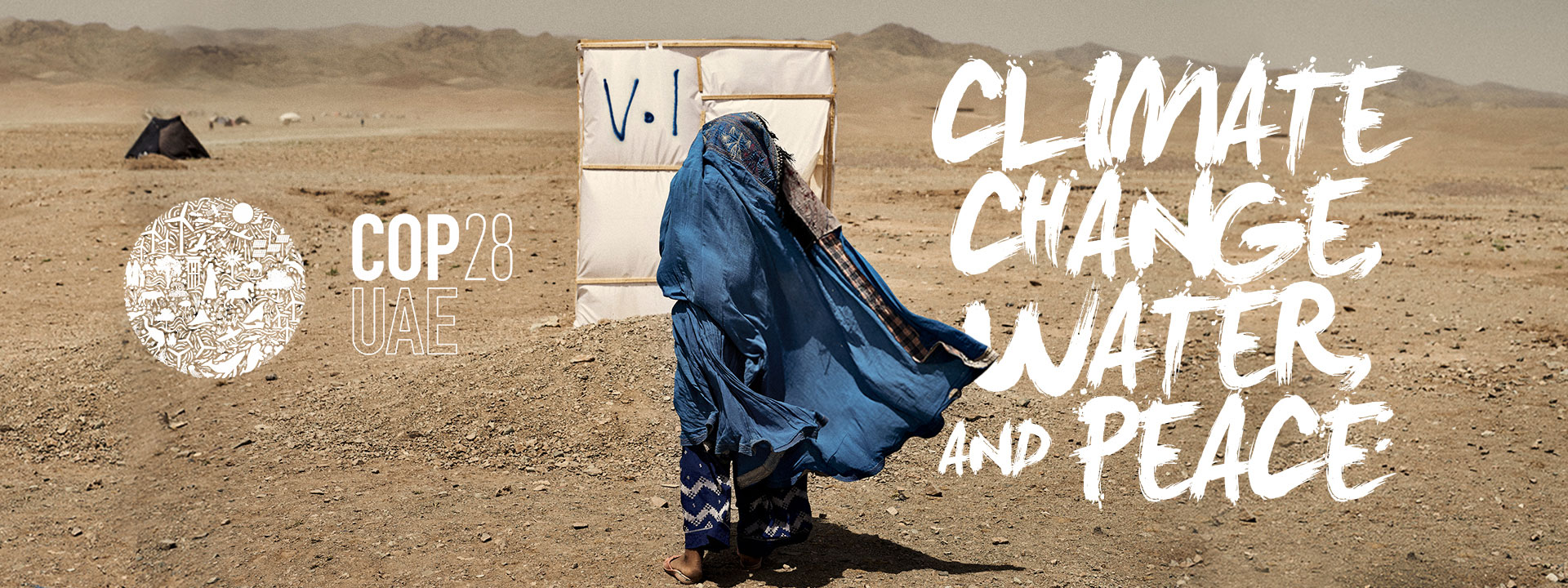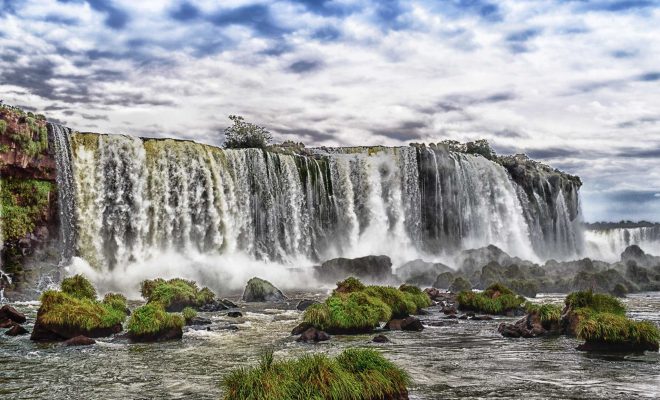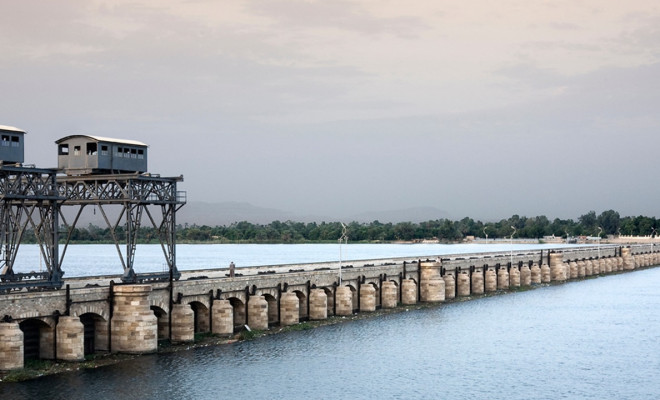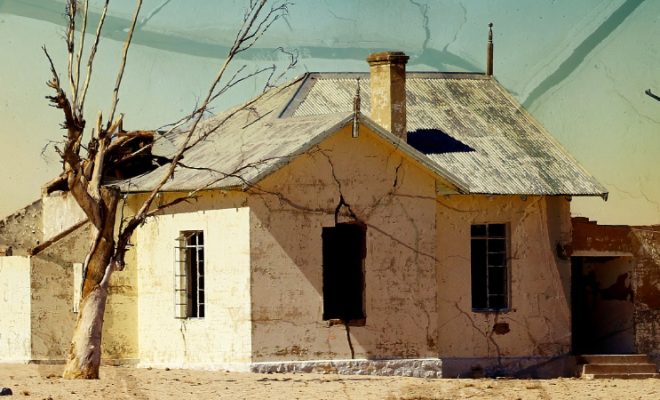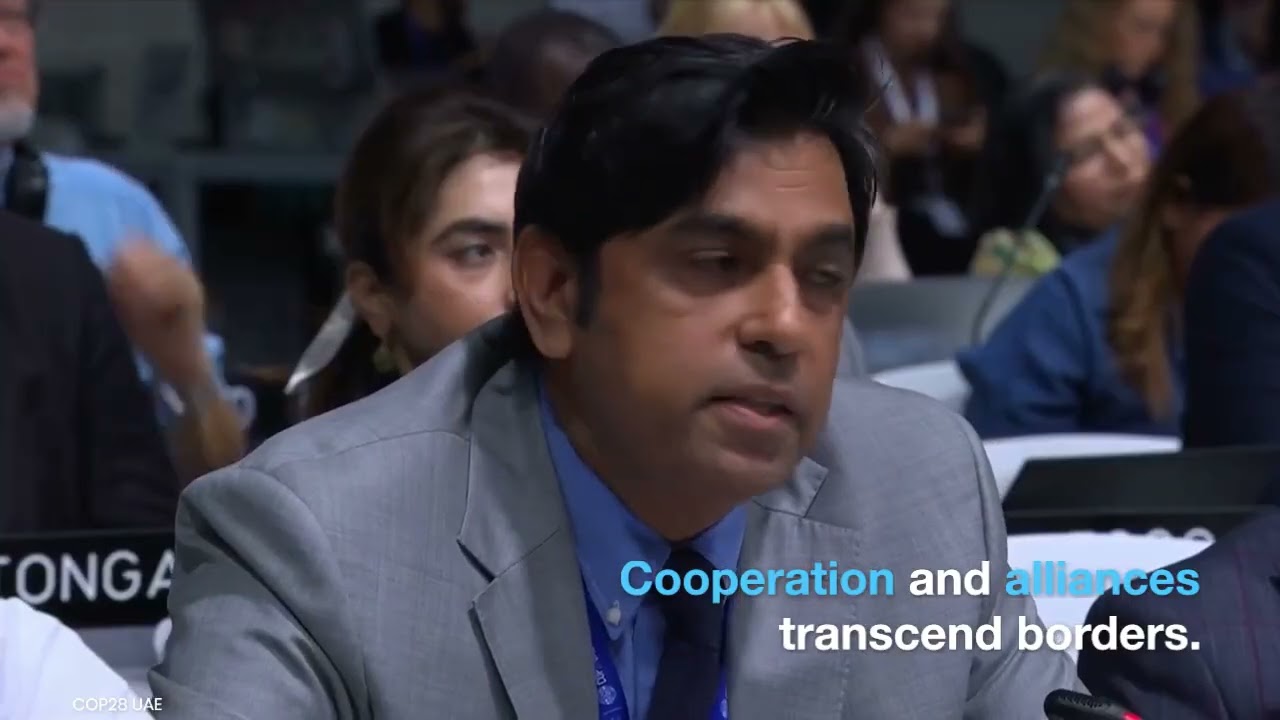
Climate is a consequence of the water cycle and determines how water is distributed on Earth and its effects on its inhabitants. At COP 28, emphasis was placed on the human dimension of climate change, how people are affected, and how they must relate to water when adapting to a situation fraught with uncertainty.
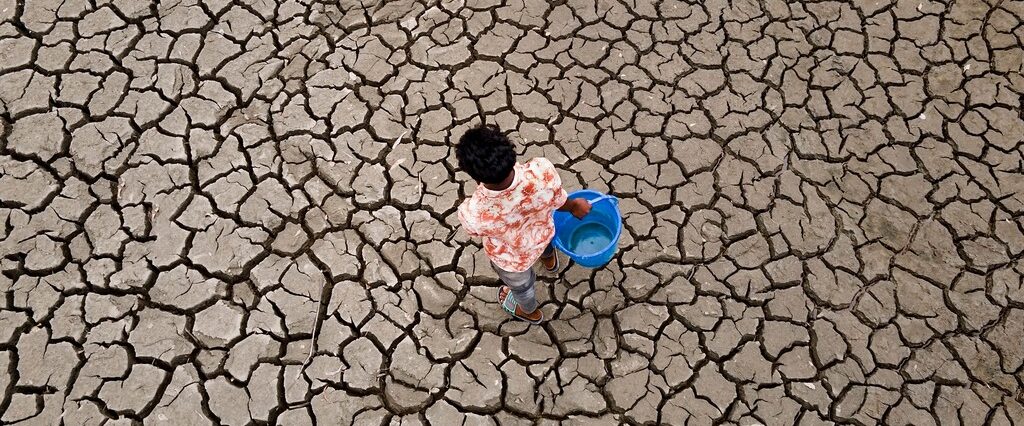
At COP 28, the relationship between climate change and health, war, and peace had a specific day focused on the needs of the people most vulnerable to conflicts, droughts, and floods. © Muhammad Amdad Hossain WMO
Addressing human needs to avoid conflict
On December 3, the first themed series in Dubai focused on the close relationship between global warming and health, war, and peace. For the first time at a COP, one of the most concerning issues was addressed: the lack of global readiness to meet the needs of those most vulnerable to conflicts and catastrophes caused by climate change.
In this context, the Declaration on Climate, Relief, Recovery, and Peace, endorsed by 70 countries and 39 organizations, recognizes that funding must be increased to meet the needs of countries with fewer resources. The document expresses the need to focus on areas where “fragility and conflict increase people’s vulnerability and exposure to climate risks and impede coping capacity and adaptation options.”
Water unites, and we must urgently do so
On that day, simultaneously with the drafting of the historic document, the We Are Water Foundation organized, in collaboration with the Muslim Council of Elders, the University for Peace, UNITAR, and the UNESCO Chair of the Abat Oliba University, the panel discussion Climate Change, Water and Peace. We also partnered with Global Hope Network International, the World Jewish Congress, Reichman University, and the Islamic World Educational, Scientific, and Cultural Organization.
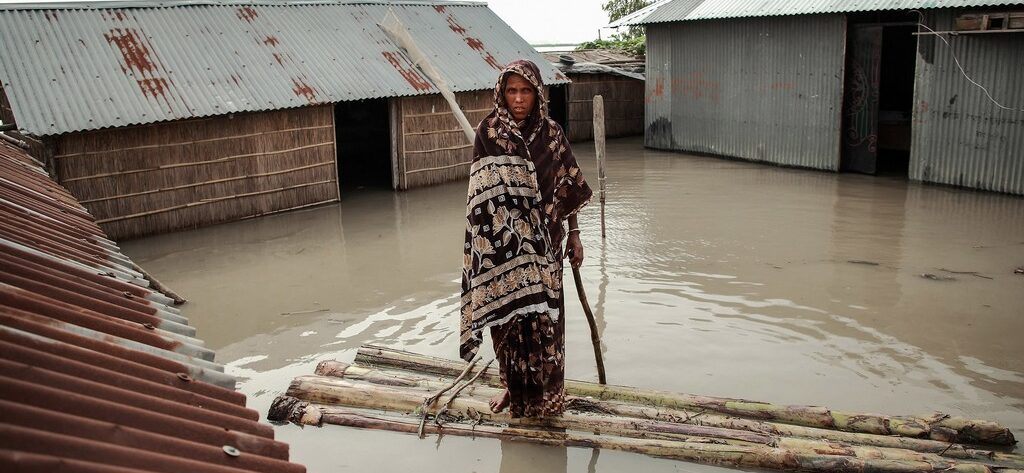
For the first time at a COP, one of the most concerning issues was addressed: the lack of global readiness to meet the needs of those most vulnerable to conflicts and catastrophes caused by climate change. © Muhammad Amdad Hossain WMO
The event was moderated by Alex Mejia, Division Director for People and Social Inclusion of UNITAR, and David Fernández Puyana, Ambassador and Permanent Observer of the University for Peace in Geneva and Permanent Delegate of UNESCO in Paris.
The purpose of the meeting was to highlight that, despite the long history of confrontation over water, freshwater resources encourage various forms of cooperation with strong partnerships rather than generating conflict: water can be a means to peace, and these partnerships are the best tool for adaptation and resilience in the face of climate change.
Adama Dieng, advisor to the Muslim Council of Elders, stressed how crucial it is to embrace this philosophy and address the problem with urgency: “At this COP, we need to get a renewed commitment for local communities to be made aware and for every government and institution to take the problem seriously. We owe it to future generations, not our own, because the effect of climate change is irreversible. If we don’t act now, in 20 years, it will definitely be too late to avoid its worst consequences.”
Faith defines values and encourages coexistence
The debate took place in the Faith Pavilion, a space designed to reflect the importance of considering that religions and people’s beliefs are a reality in the lives of many communities. They are determining factors in the social cohesion of people and the definition of their values, and for this reason, they must be taken into account in the fight against the effects of climate change.
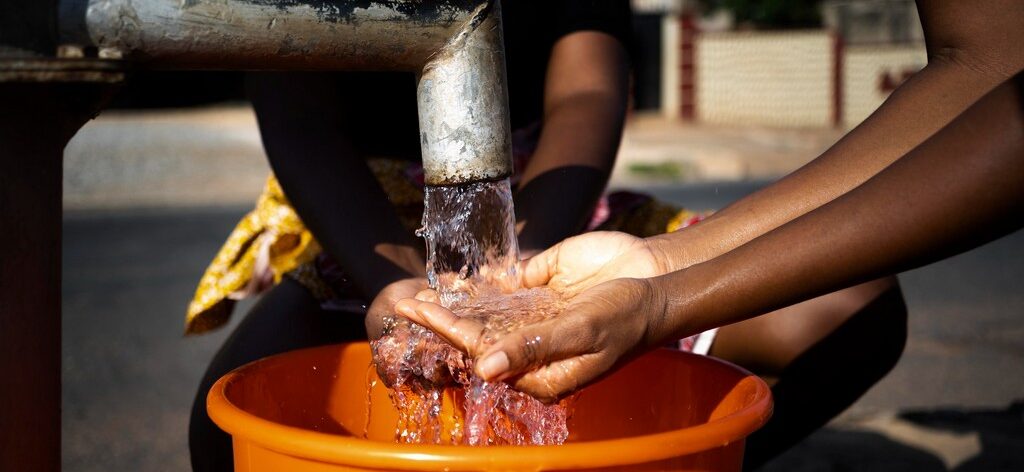
Access to water is a universal, cross-cutting value that should have no ideology or borders. © Freepik
Leon Saltiel, representative of the United Nations, UNESCO, and the World Jewish Council, stressed that faith defines values and encourages community coexistence. “The environment and water are the foundation of values: preserving the planet, peace, and prosperity for future generations,” he said and advocated using the deep spiritual significance of water. “It is a source of life and purification, something widespread in religious traditions. We can use faith to promote these values and engage people who otherwise would not be aware of and have no way to respond to the climate crisis.”
In this sense, Carlos Garriga, director of the We Are Water Foundation, expressed his satisfaction with the audience gathered at the Faith Pavilion: “In these times, when things seem so complicated, finding places like this, with so many people from different cultures and beliefs trying to find solutions to the problem of the lack of access to water and sanitation that is affecting the world, is encouraging.”
Garriga reaffirmed the importance of religious beliefs in the culture of the communities and emphasized that, ultimately, access to water is a universal, cross-cutting value that should have no ideology or borders.
Working to cooperate
About 40% of the world’s population lives in transboundary river basins, and 2 billion live in aquifers shared by more than one country; cooperation and partnerships are essential. Francisco Rojas Aravena, the Rector of the University for Peace, pointed out that only one-third of river basins have cooperation agreements and advocated that these should be increased: “It is difficult, and there has been a long list of conflicts, but we know that drinking water has led to various forms of cooperation that have often allowed ties to be forged between incompatible neighbors. Water can be a vehicle for peace, a way to bring people closer together on a national and regional level.”
The UNITAR representative and assistant to the UN Secretary-General,Nikhil Seth, referred to the different perceptions of climate change problems among the inhabitants of different countries: “Swiss schoolchildren are worried about glacier melting and tourism while those in Mozambique wonder: ˈWill my father bring food home?ˈ” He advocated education for the very young as an imperative solution: “Change will come through learning, and this will only be possible with our efforts in teaching and capacity building.”
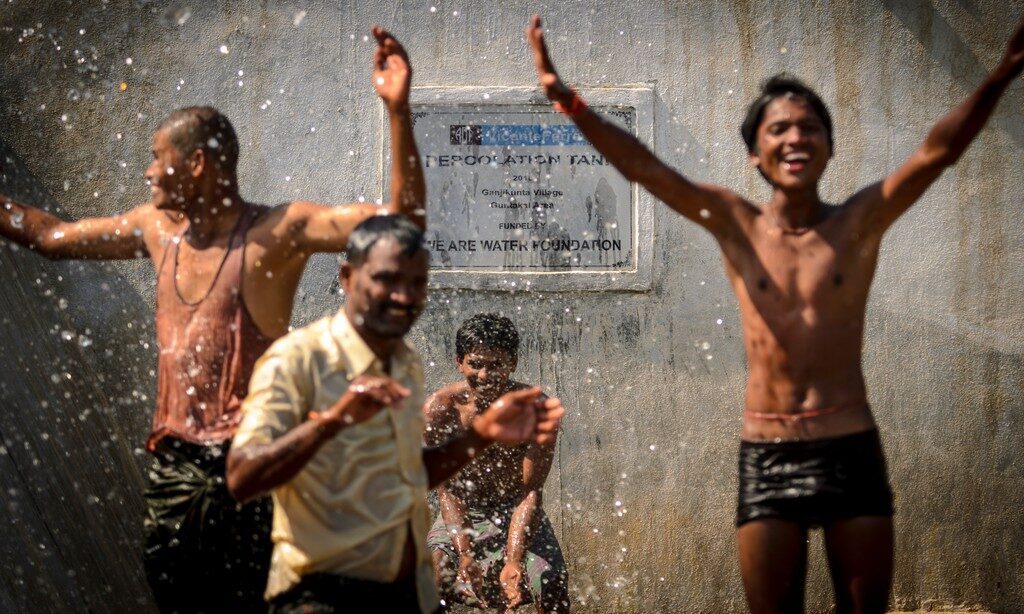
Water unites rather than separates, and this connection must be maximized. © Carlos Garriga /WAWF
For Carmen Parra Rodríguez, holder of the UNESCO Chair of Abat Oliba University, it is necessary to establish an international cooperation platform devoted to the sustainable management of water resources: “We must develop communication and coordination protocols to address the climate crisis quickly and effectively. Water is an instrument of peace and cooperation, and we must extend this idea in international forums with a commitment to work together. Water management ensures a more sustainable future and lays the foundations for broader cooperation in all other areas.”
The importance of cooperation was one of the points stressed by the director of the We Are Water Foundation, who considered it essential at the local, regional, or national level; a collaborative spirit that must involve a deep knowledge of the small communities, their culture, beliefs, and history as a fundamental first step to develop any aid project. From the elders to the youngest, the whole community must be involved: “They must know what solutions are being applied and that the solution relies on them in the decision-making process; without their involvement, it is impossible to develop a sustainable project. Women, who are the most affected by the lack of water and adequate sanitation facilities, must be taken into account; they are the ones who must take the lead in management. The same is true in schools: the children who acquire the knowledge are the ones who pass it on to adults through their parents. And, of course, we need the commitment of local and national governments, which help drive a strategy to make the project sustainable and transfer it to the entire country.”
At the state level, water ultimately brings people together
Tensions between states over water are commonplace; however, the reality is that dialogue eventually prevails. One testimony was given by journalist Nuria Tesón, who has worked in the Middle East for 15 years: the current conflict over the Nile flow, which has led to severe tensions between Egypt, Ethiopia, and Sudan, is driving intense collaboration: “A few years ago, many people were worried that a war would break out. We can say that progress has been made towards a solution through dialogue to achieve cooperation, which is crucial for the survival of those who live off the river’s water. Ethiopia must have the opportunity to provide electricity for its fledgling industry. At the same time, Egypt cannot lack water for agriculture, and Sudan must be able to control floods and extend its agricultural land.”
Examples of cooperation at the highest international level were given by Daphné Richemond Barak, professor at the Lauder School of Government, Diplomacy & Strategy, Reichman University, who explained that the so-called “blue diplomacy,” based on water as a vector of security between states, is a source of cooperation and dialogue. She mentioned the success stories in the complicated context of the Middle East from 1940 until now: the various agreements between Jordan, the United Arab Emirates, Israel, Lebanon, Turkey, Iraq, Syria, and the Palestinian Authority; and she also referred to the agreements between India and Pakistan on the Indus water: “I am convinced that all states understand the importance of water as a component of security, independence, and stability. Many countries beyond the Middle East can learn much and redirect water to create greater welfare.”
Water unites rather than separates, and this connection must be maximized. It is one of the pillars on which the world can overcome the climate crisis fairly.


